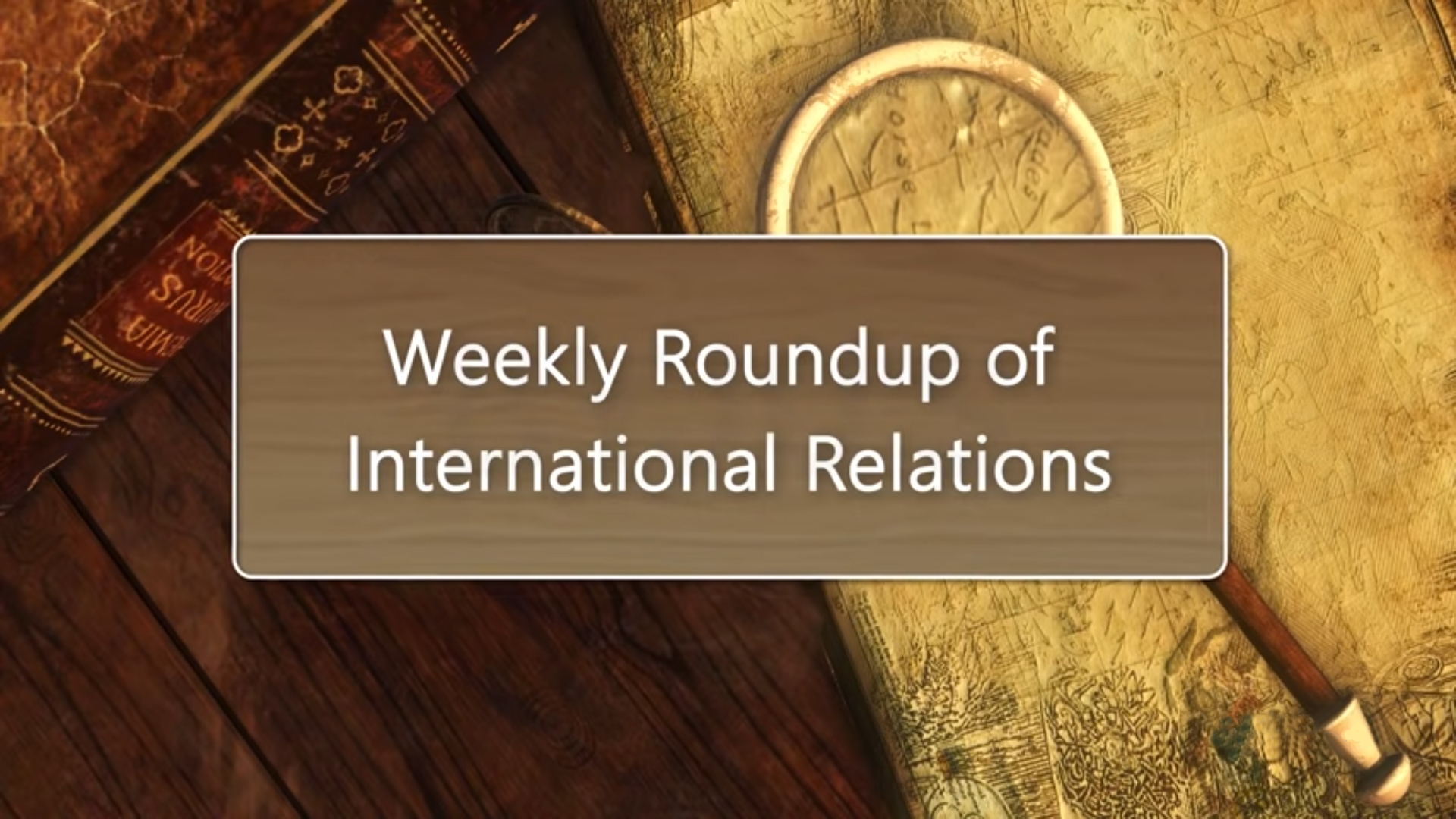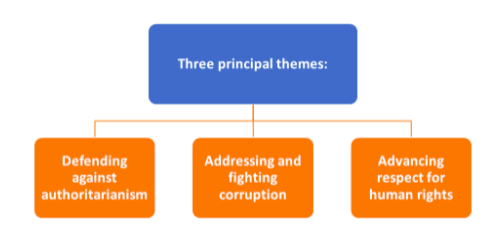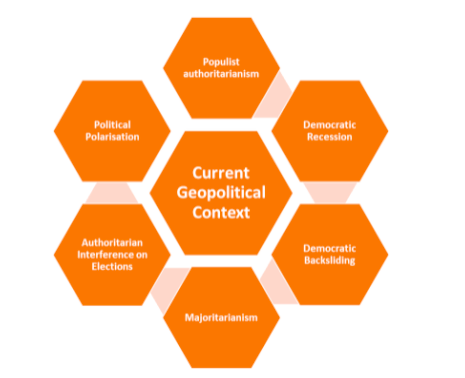International relations is a very important segment of the UPSC syllabus. In this series, we present an analysis of the most important international issues and developments that occurred over the past week relevant for the IAS exam. In this article, you can learn more about the Democracy Summit organised by US President Joe Biden.

What is ‘Summit for Democracy’?
US President Joe Biden tabled the world’s first-ever summit devoted to building both national and international political will for democratic renewal.
Objectives:
- To strengthen democracy in times of peril and how democracy still works and can improve people’s lives in tangible ways.
- To show how open, rights-respecting societies can work together to effectively tackle the challenges of our time, such as the COVID-19 pandemic, the climate crisis, and inequality.

What is the Significance of the ‘Summit for Democracy’ in the Recent Context?
- The timing of the Summit is significant, given global backsliding in democratic governance, human rights, and rule of law, as well as the mounting threat posed by authoritarian authorities in China and Russia.
- The summit represents the centrality of democratic values in the Biden administration’s foreign policy, as well as the United States’ return to leadership in global democracy renewal.
- The renewed US commitment to promoting democracy gives chances for U.S. allies and democracies in Asia to cooperatively offset Chinese dominance.
- Its effectiveness in reversing global democracy erosion is contingent on how participating countries and their civil society partners grab the momentum to pursue concrete coordination.
- The world has seen many summits based on economics, military and environmental matters, but this is the first time in many years that the focus has been on human rights.

Why are the concerns associated with the ‘Summit for Democracy?
- Notable Exclusions: Significant misses at the Summit for Democracy are Hungary and Turkey, both NATO members, but under leaders that have pushed an authoritarian and right-wing agenda. Notable exclusions in Asia are Bangladesh, Sri Lanka and Singapore.
- Limitations of the US Administration: The summit exposed the serious flaws in the US administration’s democracy-protection plan. The US administration minimised the incident, which was mostly ignored in Europe’s media.
- Opportunity Missed for Democratic Renewal in Africa: The summit chose African heads of state whose contributions amounted to promissory notes on elections, human rights, and constitutionalism at a key juncture in Africa’s democracy when these processes confront some of their greatest risks and challenges ever. The summit missed a historic opportunity to hear from the “other side” by downplaying non-state entities.
- Russian Refusal: Russia’s refusal to accept the verdict of the closely fought US presidential elections was seen to have undermined the US’ democratic core.
- Chinese Reaction: China has kept up a sustained attack on the US over the democracy summit. Chinese government officials have come up with reports and articles hailing China’s model of democracy and pointing out flaws with its practice in the US.
- New Cold War Mentality: China and Russia have spoken out with some vehemence against a democracy summit that excludes both, branding the US move as “an evident product of its Cold-War mentality”.
- US as a “backsliding democracy”: The US has been designated as a “backsliding democracy” by the International Institute for Democracy and Electoral Assistance, which has seen a “visible deterioration” since 2019. It cited, among other things, voting restrictions in US states that “disproportionately affect minorities in a negative way” and growing polarisation as reasons the US should be aware of.
- No Concrete Outcome: Commentators have also questioned how successful the summit would be in terms of achieving concrete ends as they note that the factors that prevent democracy from taking root are often linked to poverty and lack of education and opportunities for economic growth.
Summit for Democracy: Critical Evaluation for India
- Opportunities for India:
- Imbibe Multilateralism: To attract investments or reinvigorate multilateralism, India is a preferred economic and strategic partner based on shared principles such as the rule of law.
- Showcase Democratic values: India could utilise the summit to further establish a non-Western, indigenous notion of Indian democracy.
- Boost to South-South Cooperation: Its paradigm of South-South development cooperation emphasizes strong governance and civil society involvement.
- Counter China: Delhi may use the summit as an opportunity to promote itself as a strategic alternative to China by emphasizing shared principles.
- Extend Governance to the West: The Indian government sees an opportunity to use its governance as a strategic differentiation, particularly with Western democracies.
- Significant Platform for India: India has got an international platform to broaden its political base at home by demonstrating that India is regarded as the world’s largest democracy.
- Concerns for India:
- International and Internal Criticism: The US lacks the authority to press India until it addresses its own democratic failings.
- US Central Position: The Indian administration may be wary of US’s central position in the summit’s invitation list, agenda, and future.
- Concern over Exclusion: India is concerned that the absence of some of its closest democratic neighbours, like Bangladesh, will contribute to China’s perception that the summit is really another Western-led strategic ploy to divide Asia.
- Concerns over the Indo-Pacific region: India is undoubtedly concerned that excluding its fellow, flawed democracies will make fleshing out the idea of a free and open Indo-Pacific and countering China’s growing political influence in the area more difficult.
Conclusion:
The Summit for Democracy will prove its worth if it can help mobilize such political will, starting with a democratically dysfunctional United States. It offers a timely test of the basic proposition that democracies do have the capacity for self-correction and can learn from each other along the way. It gives civil society an opportunity to leverage summit commitments to push for reforms back home.
India’s future must not miss out on the multitude of democratic experimentations going on all the time, and India is too large and heterogenous a democracy to be judged on a few self-selected axioms. The most robust and fascinating democratic innovation that India can share with the world is its ongoing experimentation in democratic decentralization.
Read more International Relations This Week articles in the link.
International Relations This Week – Biden’s Democracy Summit:- Download PDF Here
Comments